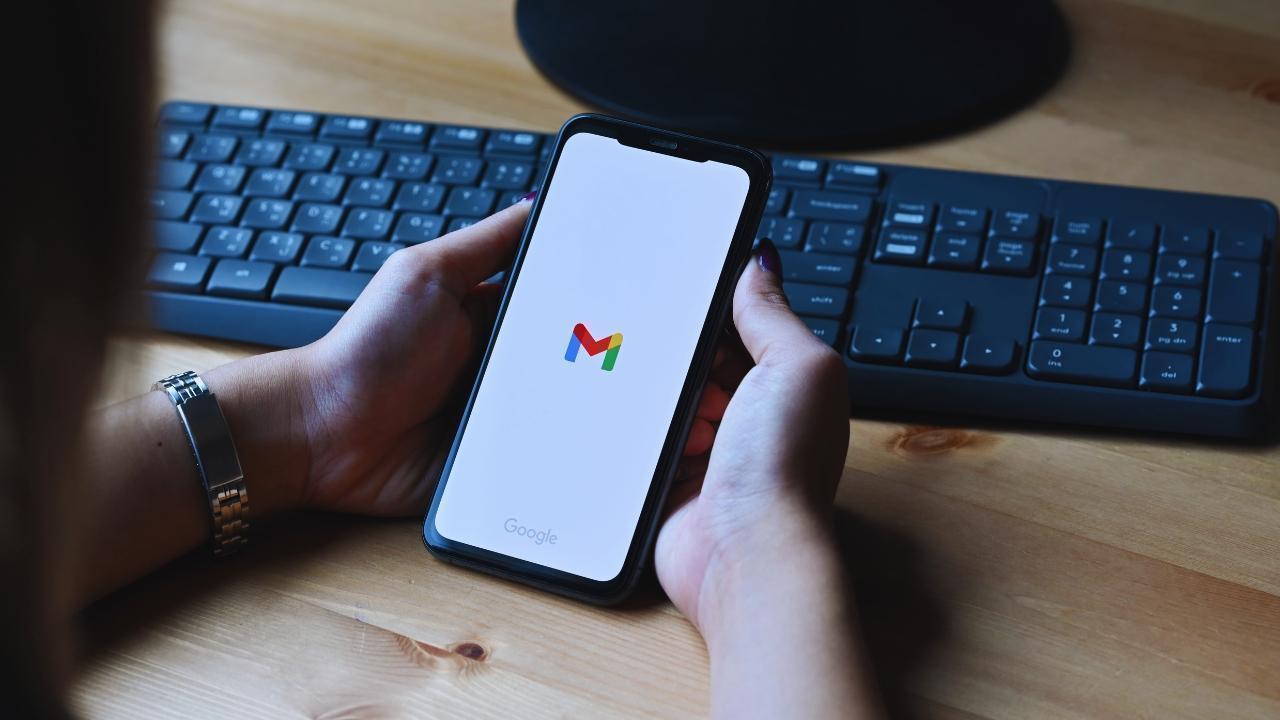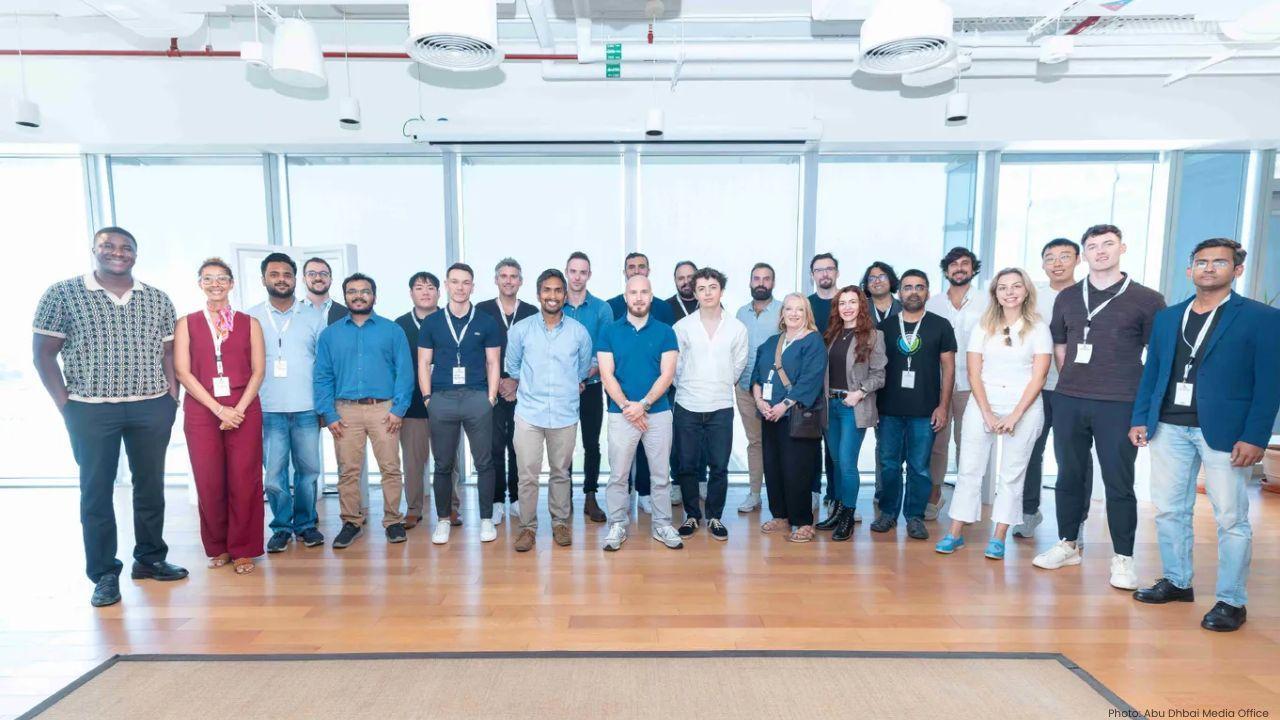
Post by : Anish
In recent weeks, a major security scare has unfolded surrounding Gmail, one of the most widely used email services in the world. Reports of a potential data breach have sent shockwaves through individuals, businesses, and institutions that depend heavily on Gmail for communication and document storage. While investigations are ongoing, the situation has already raised pressing questions about online safety, personal privacy, and the broader cybersecurity landscape. For millions of users, this news is not just about a technical glitch—it is about trust, responsibility, and the way we protect our digital lives.
For over a decade, Gmail has been a cornerstone of personal and professional communication. With more than 1.8 billion active users globally, it has transformed into far more than just an email service. People rely on Gmail for managing sensitive conversations, sharing important files, storing critical documents, and linking to countless services from cloud storage to banking and e-commerce. Businesses, too, often integrate Gmail with Google Workspace, making it essential for productivity and collaboration.
This dominance has made Gmail a prime target for cybercriminals. Any vulnerability in its system does not just affect a few—it impacts millions simultaneously. The recent breach scare has underscored this reality, reminding users that no platform, no matter how powerful, is immune to attacks.
The breach warning, as circulated across technology watchdogs and cybersecurity circles, indicated that hackers may have gained unauthorized access to Gmail accounts or associated metadata. While official statements from Google have stressed that core user data remains secure, cybersecurity researchers flagged suspicious activity involving third-party platforms and phishing schemes connected to Gmail login credentials.
At its core, the warning suggests two main possibilities: either Gmail itself was directly targeted by attackers through vulnerabilities, or a massive wave of phishing campaigns tricked users into handing over their login details. Both scenarios highlight how fragile our digital identities can be, even when they are protected by robust systems.
Hackers are drawn to Gmail accounts for several reasons. Firstly, Gmail accounts often double as a user’s digital identity across multiple platforms. If someone gains access to your Gmail, they can reset passwords for banking apps, social media accounts, and cloud services. Secondly, Gmail’s sheer scale means that even a small percentage of compromised accounts translates into millions of potential victims.
Additionally, Gmail’s integration with services like Google Drive, Google Photos, and Google Docs means that attackers could gain access to sensitive personal files, private photos, and critical business documents. In other words, a Gmail breach is not just about emails—it is about entire lives stored online.
Cybersecurity incidents like this are not just abstract technical problems; they have real-world consequences for ordinary people. Victims of past breaches have reported losing money from compromised accounts, experiencing identity theft, and suffering from the misuse of private information.
For businesses, the stakes are even higher. A breached corporate Gmail account could expose confidential contracts, financial records, or intellectual property. It could also erode client trust, leading to long-term reputational damage.
In essence, while the breach warning is concerning on a technical level, its human impact cannot be overlooked. Every exposed account represents an individual or organization at risk.
In light of the Gmail breach warning, cybersecurity experts have recommended a series of protective steps for users. These include:
Enabling Two-Factor Authentication (2FA): By adding a secondary layer of verification, users can ensure that even if a password is stolen, attackers cannot easily log in.
Regularly Updating Passwords: Strong, unique passwords make it harder for hackers to gain access. Using password managers can simplify this process.
Avoiding Suspicious Emails: Many phishing scams rely on tricking users into clicking malicious links disguised as legitimate Gmail or Google notifications.
Reviewing Account Activity: Gmail allows users to check for unusual logins, which can help in spotting suspicious activity early.
Backing Up Critical Data: Storing essential files outside of Gmail and Google Drive reduces the impact of a potential breach.
Taking these steps may not guarantee total immunity, but they significantly reduce the risks associated with cyberattacks.
As news of the breach warning spread, Google was quick to reassure its user base that it was investigating the reports thoroughly. The company highlighted its continuous investment in advanced encryption, real-time threat detection, and AI-powered security tools.
However, critics argue that in a world where cyber threats evolve daily, even the most advanced defenses can fall short. Some have questioned whether Google is doing enough to educate users about phishing schemes, password hygiene, and account recovery options. Others have raised concerns about whether the company should be more transparent when potential vulnerabilities are detected.
Ultimately, the Gmail breach warning has reignited debates about the responsibilities of tech giants in safeguarding not just their platforms but also the digital identities of billions of people.
The Gmail warning is part of a broader pattern of escalating cyber threats. Over the past few years, data breaches have hit major organizations across industries—from social media platforms to healthcare providers, from banks to government agencies. What these incidents have in common is the reminder that in a connected world, no system is entirely safe.
Experts note that cybercriminals are increasingly well-funded, organized, and sophisticated. They exploit human weaknesses as much as technological ones, making phishing one of the most effective tools in their arsenal. The Gmail case shows that protecting data is no longer just about firewalls and encryption; it is about cultivating awareness, resilience, and proactive habits among users.
For businesses, the Gmail breach warning is a wake-up call to strengthen cybersecurity measures. Companies must train employees to recognize phishing attempts, enforce stricter password policies, and invest in secure collaboration platforms.
Governments, too, have a role to play. Cybersecurity regulations and data protection laws are becoming increasingly vital as the digital economy grows. In many countries, breaches must now be reported to regulatory authorities, and companies face penalties for failing to safeguard user information. The Gmail warning serves as yet another case study in why such measures are necessary.
As investigations continue, users will be watching closely for updates from Google and cybersecurity experts. Whether this incident turns out to be a contained phishing campaign or a broader breach, it will likely shape the way Gmail and other email services handle security in the future.
The most important takeaway is that cybersecurity is a shared responsibility. Tech companies can build secure systems, but users must also remain vigilant. Together, these efforts can help reduce the risks of breaches and build greater trust in the digital tools we rely on every day.
The Gmail breach warning is more than just another headline—it is a reminder of how deeply our lives are tied to digital platforms and how vulnerable that dependence makes us. Every email, every file, and every login linked to Gmail carries value not only for us but also for those who seek to exploit it.
In this light, the warning should not simply be a cause for fear, but a catalyst for action. By taking personal steps to protect our data, demanding accountability from tech giants, and supporting stronger cybersecurity frameworks, we can turn this moment of vulnerability into an opportunity for greater resilience.
This article is based on publicly available information and expert analysis surrounding the Gmail breach warning. Investigations are ongoing, and details may evolve as new findings emerge. Readers are encouraged to follow official updates from Google and cybersecurity authorities for the most accurate and timely information.

Eid e Milad 2025 Honoring the Birth and Teachings of Prophet Muhammad
Discover Eid e Milad 2025 celebrating Prophet Muhammad s birth with prayers charity peace and te

Baaghi 4 Tiger Shroff Returns with Thrilling Action and High Octane Drama
Explore Baaghi 4 Tiger Shroff s thrilling action stunning stunts gripping story and why this Bol

Voices of UAE: Bouchra Izaabel-Transforming Fertility Care, One Heart and One Story at a Time
Transforming Fertility Care, One Heart and One Story at a Time

Nvidia Faces Uncertainty in China Amid US-China Tech Tensions
Nvidia navigates US-China tech tensions as China remains key market. Demand for advanced chips rises

Wednesday Season 3 Release Date Plot Cast and What Fans Can Expect
Discover Wednesday Season 3 release date cast plot twists and what fans can expect from the thri

Hub71 Welcomes 26 AI Startups in Largest Cohort Yet
Hub71 launches its 17th cohort with 26 AI startups from 12 countries, raising AED 818M, boosting Abu

Deepika Padukone Joins LVMH Jury as First Indian Member
Deepika Padukone makes history as the first Indian juror at the 2025 LVMH Prize in Paris, joining fa

Voices of UAE: Bouchra Izaabel-Transforming Fertility Care, One Heart and One Story at a Time
Transforming Fertility Care, One Heart and One Story at a Time

Pakistan Defeat UAE by 31 Runs in T20I Tri-Series Clash
Pakistan beat UAE by 31 runs in Sharjah T20I Tri-Series. Saim Ayub hit 69, Hasan Nawaz 56, while Has

Vice President’s Jiu-Jitsu Cup Ends with UAE Clubs Triumph
Sharjah Al Ain Al Jazira and Baniyas clubs shine as champions in the Vice President’s Jiu-Jitsu Cup

Liverpool beat Arsenal City fall to Brighton in EPL drama
Liverpool edge Arsenal with Szoboszlai’s stunning free-kick, while Manchester City suffer second str

Tawfiq wins UAE President’s Cup Arabian Horse Race in Russia
Tawfiq claimed victory at the UAE President’s Cup in Kazan, Russia, thrilling 20,000 fans with a dra

GCC Chief Urges Stronger Push on Global Free Trade Talks
GCC Secretary-General Jasem Albudaiwi pressed negotiators to intensify efforts on free trade pacts b

UAE and India Strengthen Trade Ties with Mumbai Business Talks
UAE Minister of Foreign Trade Dr. Thani Al Zeyoudi met Indian leaders in Mumbai to expand CEPA benef

UAE announces September fuel prices for petrol and diesel
The UAE Fuel Price Committee set September 2024 rates: Super 98 at AED 2.90, Special 95 and Diesel a